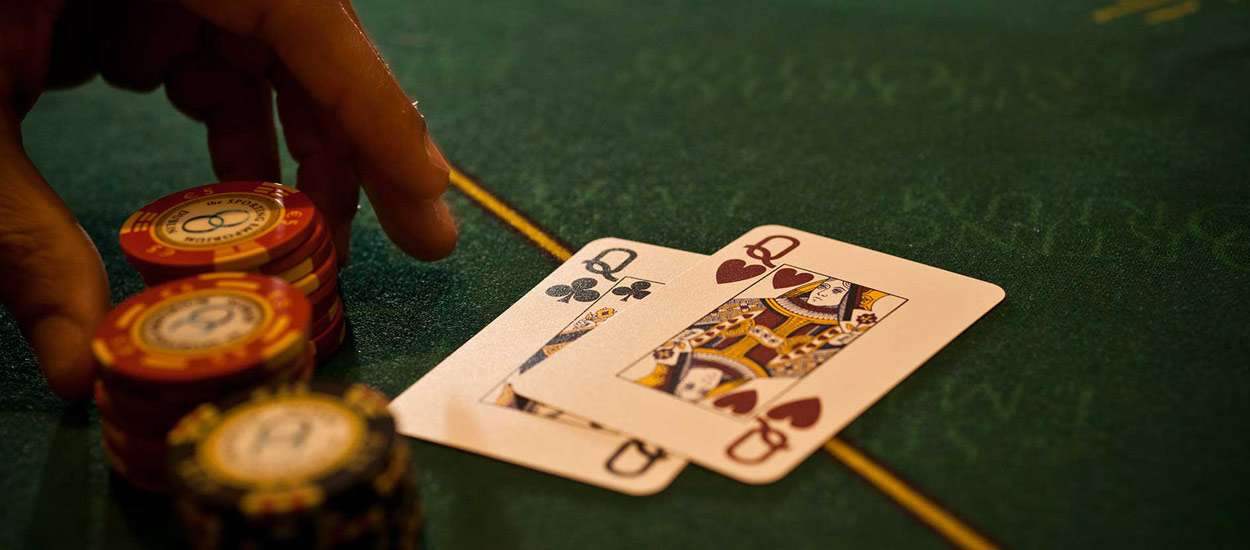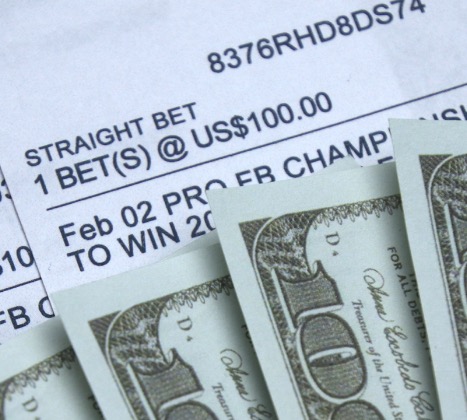Sports betting in California may never happen without Tribal support
One of the more talked about sessions at the 2024 SBC North America Summit Tribal Gambling related to California sports betting. At the session, a panel including some of the commercial operators, admitted that if sports betting was ever going to be legalized in the state, it would have to be initiated by the Native American Tribes in California and on their terms.
Efforts in 2022
In the 2022 midterm elections, California put two gambling propositions on the ballot, Proposition 26 and Proposition 27. Proposition 26 aimed to legalize land-based sports betting on Tribal lands, while Proposition 27 aimed to legalize online sports betting to be offered anywhere in the state. The Proposition allowed any Tribe or a commercial operator to offer the product. Proposition 26 had the support of 24 Tribes, 3 unions and 16 other organizations, including a Baptist church, while Proposition 27 only had the support of 3 Tribes, several politicians, several online gambling operators including DraftKings, Fan Duel and BetMGM, plus Major League Baseball. Both propositions failed. Proposition 26 lost by a 2 to 1 margin and Proposition 27 lost by a 6 to 1 margin.
Importance of Native American Tribes in CA gambling
To understand why the Tribes will be the only way forward for sports betting or any form of online gambling, it’s important to understand the makeup of the state and its history.
From the start of the last century the only legal forms of gambling were parimutuel horse racing and some forms of poker. Hold ‘em poker was always believed to be legal, but the legality of draw poker was in question. Nevertheless, the state never prosecuted any private poker games or games held in clubs. In 1987 the state officially legalized poker and in 1997, California set up the California Gambling Control Commission whose duties included overseeing card rooms. That made it clear that card rooms were perfectly legal, leading to the creation of several card rooms, some quite small, but others like the Bicycle Club Hotel and Casino Commerce Club being very large operations. Currently there are over 60 licensed card rooms with over 1,800 tables.
Other forms of casino wagering remained illegal, but a few California Tribes ran casinos on their lands offering slot machines, blackjack, bingo, poker and other games, quoting sovereign rights. Those rights were challenged in the Supreme Court in the California v. Cabazon Band of Mission Indians (1987) case when California sought to ban the Tribe from continuing operations. The U.S. Supreme Court (SCOTUS), however, ruled that since gambling was legal in the state, they couldn’t ban the Tribes from offering gambling as well. This led to other cases being brought before the courts. So in 1988 Congress enacted the Indian Gaming Regulatory Act (IGRA), which sought to allow states to create gambling partnerships with Tribes whereby Tribes could offer gambling provided they agreed to pay the state a portion of the revenue. The IGRA was passed and signed by Ronald Reagan.
Tribes can get three different licenses. Class I licenses involve social games, Class II involve bingo and games of skill, and Class III covers all other gambling not part of I or II. Sports betting was not mentioned since it was specifically illegal in the United States. California was one of the first states to create compacts with Native American Tribes and gave them exclusive rights to Class III gambling except poker and horse racing.
California has 109 federally recognized Tribes and 40 other self identified Tribes that have applied for federal recognition. Currently 73 of the Tribes have compacts and run 76 casinos in the state, deriving over $9 billion per year in revenue which the Tribes say has given them independence from relying on state handouts. Some Tribes oppose all forms of gambling and have tried to block gambling expansion, but they are in the minority and generally stay on the sideline, although some happily accept payments from the Tribes wit casinos anyways. Naturally Tribes with casinos in larger cities or close to highways are far more substantial, so they share some of that revenue with the smaller Tribes.
Online Poker Struggles
While online gambling was never really pursued, that changed after the passage of the Unlawful Internet Gambling Enforcement Act (UIGEA) when the state looked into legal online poker at the behest of the poker clubs and a few Tribes. Under state rules all parties have to be in agreement for any gambling expansion to go forward, which proved to be a problem. The horse racing industry did not want online poker legalized, believing it would cut into their profits, and the Tribes and card rooms fought over who should benefit from online gambling. More concerning, the Tribes started infighting over who they believed they should be allowed to partner with.
More concerning, the Tribes started infighting over who they believed they should be allowed to partner with.
One coalition led by the Morongo Tribe, and eventually including the Bicycle Club, signed an agreement with PokerStars to be the online provider for their poker rooms. Another coalition, led by the Pechanga Tribe, opposed this vehemently and said that PokerStars should not be allowed to operate in the state because they were bad actors having offered online poker to Americans after the passage of the UIGEA. Naturally, Pechanga’s biggest concern is that they would be left in the dust, since PokerStars is the biggest company by far and away in the poker space. This has led to a stalemate that still exists today.
It seemed that a breakthrough was made around 2014 when the racetracks agreed to block their opposition to online poker, provided they got a cut of the revenue and a Senator put in a rule to address PokerStars as a bad actor via a large fine. Still, the Pechanga were adamant they would not budge. Pechanga finally agreed to a 10-year ban for PokerStars and a $60 million fine paid to their coalition once they enter, but that was shot down by the Morongo coalition and PokerStars as a nonstarter. So now almost 15 years after the discussion of online poker in California it is still no closer to being legalized.
Sports Betting suffering the same fate
So, it’s not surprising that sports betting is causing the same rift as poker. Once again, the racetracks want the ability to offer sports betting, while most of the Tribes want them excluded. But unlike poker, there is some disagreement as to how much the Tribes need to be involved. Since sports betting is not officially part of Class III gambling, FanDuel and DraftKings thought they could circumvent the Tribes with Proposition 27. Naturally it failed and now the largest Tribes said they don’t trust those companies, the politicians who backed the proposition and the three Tribes that put their sponsorship behind the proposition.  Many analysts I spoke to agreed it was a foolhardy endeavor anyways saying, even if Proposition 27 passed, it likely would never have become a law. Many of the politicians in state Congress have very close ties to the Tribes and would have used all legal means to defeat any bill that went forward, especially since a proposition is only a referendum question and is not binding. Under current rules in California, gambling expansion must be approved by a referendum, but that approval isn’t mandatory, meaning the governor can still say no.
Many analysts I spoke to agreed it was a foolhardy endeavor anyways saying, even if Proposition 27 passed, it likely would never have become a law. Many of the politicians in state Congress have very close ties to the Tribes and would have used all legal means to defeat any bill that went forward, especially since a proposition is only a referendum question and is not binding. Under current rules in California, gambling expansion must be approved by a referendum, but that approval isn’t mandatory, meaning the governor can still say no.
While Tribes believe that sports betting is a form of Class III gambling and they have exclusive rights, many Tribal leaders have stated their bigger concern is with online casino gambling, specifically slot machines and table games. They are worried that online casino gambling will cannibalize their land-based revenues, but many Tribal leaders also acknowledge that online casinos and sports betting is inevitable. So, they may amend their opposition, but only on their terms. Really, it’s no different than the stance of many other Tribes in the nation, but the failed attempt with Proposition 27 is proof that they have ultimate power in the state with regards to gambling.  So, it’s not surprising that the panel on SBC and state politicians have acknowledged that the only way forward with sports betting and possibly online casinos (and by some miracle maybe online poker) is with Native American Tribes leading the way. Unlike poker there are many large brands so a Tribe signing an agreement with say FanDuel won’t give them a massive advantage since DraftKings, BetMGM, BetCaesars, BetFanatics and ESPNBet among others can give them just as much market share. And they are certain that if all factions agree to move forward, they can get the public to approve a new proposition. The only real question is still the terms.
So, it’s not surprising that the panel on SBC and state politicians have acknowledged that the only way forward with sports betting and possibly online casinos (and by some miracle maybe online poker) is with Native American Tribes leading the way. Unlike poker there are many large brands so a Tribe signing an agreement with say FanDuel won’t give them a massive advantage since DraftKings, BetMGM, BetCaesars, BetFanatics and ESPNBet among others can give them just as much market share. And they are certain that if all factions agree to move forward, they can get the public to approve a new proposition. The only real question is still the terms.
I spoke with a colleague in California who said that in his view the main selling point for Tribes will be a hefty licensing fee and taxes paid to Tribal interests, as well as social causes; an agreement that Tribes will benefit almost exclusively from online casino wagering, (the Tribes may pay the operators an operating fee rather than the other way around); that MGM, Caesars and any big casino companies will not seek to open a resort casino in California; that only Tribes will offer land based sports betting; and that all rules related to geolocation, social concerns like problem gambling and addiction, licensing rules and the sports and bet types allowed will be approved by the Tribes. Most importantly the Tribes will want a say in any future changes and they’ll want state politicians to stay out of the equation.
"I can’t tell you how much some Tribal leaders hate many state and local politicians. Most Tribes feel the government doesn’t believe in their sovereignty and want things to go back to the old days when they went hand and foot to the state looking for handouts. If a group is oppressed for centuries, you can no longer say forgive and forget. If a politician says it’s daytime many Tribal leaders will look at the sky to make sure the sun is out. The Tribes aren’t stupid. They know that expanded gambling will benefit them, but they will also know that if they don’t dictate the terms, they will get the short end of the stick."
If sports betting is legalized in California, it will be massive and almost certainly surpass the revenue being generated in New York. But unlike New York and even Florida, Tribal buy-in is the only way forward. Hopefully for California bettors and taxpayers that will happen sooner than later.
Read insights from Hartley Henderson every week here at OSGA and check out Hartley's RUMOR MILL!







































